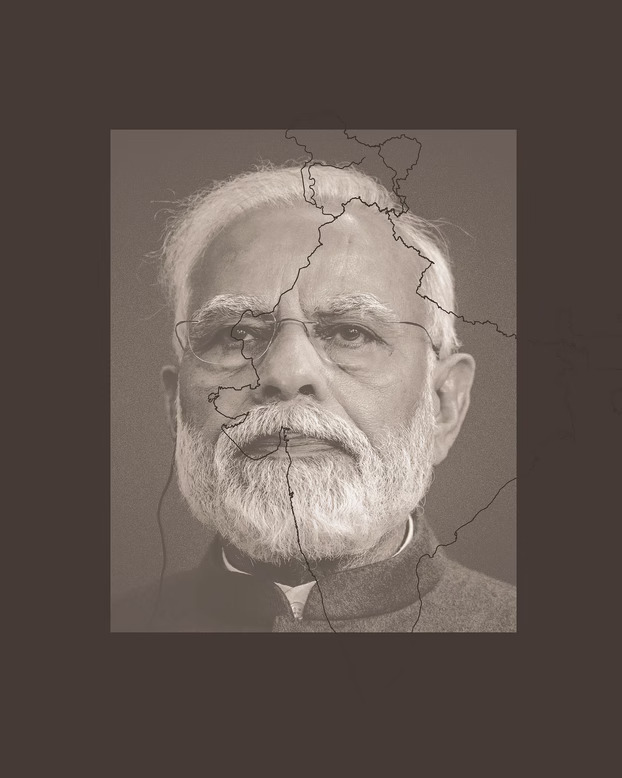Cracks in Modi's Populist Facade: India's Political Landscape in Flux
Politics Politics of IndiaPosted by NewAdmin on 2025-01-31 08:52:15 |
Share: Facebook | Twitter | Whatsapp | Linkedin Visits: 27

Prime Minister Narendra Modi's tenure has been characterized by a strongman image and populist rhetoric that resonated with many Indians. However, recent developments suggest that this facade is beginning to crack, revealing underlying challenges that could reshape India's political future.
Electoral Setbacks and Rising Discontent
In the 2024 general elections, Modi's Bharatiya Janata Party (BJP) suffered a significant blow by losing its majority in Parliament. This unexpected outcome has been interpreted as a response to widespread dissatisfaction with the government's economic policies and governance. Voters, particularly from marginalized communities, have expressed frustration over unmet promises and deteriorating living conditions.
Economic Policies Under Scrutiny
Modi's economic initiatives, such as the demonetization of high-value currency notes in 2016 and the implementation of the Goods and Services Tax (GST), were initially hailed as bold reforms. However, their execution faced criticism for causing disruptions, especially among small businesses and the informal sector. The COVID-19 pandemic further exacerbated economic challenges, leading to job losses and increased unemployment rates. A significant portion of the population, particularly youth, continues to grapple with unemployment, with estimates indicating that unemployment among individuals aged 15 to 24 exceeds 45%.
Social and Political Challenges
Modi's tenure has also been marked by policies that have intensified social divisions. Legislations such as the Citizenship Amendment Act (CAA) and the National Register of Citizens (NRC) have been perceived by many as discriminatory, leading to widespread protests and social unrest. These policies have raised concerns about India's secular fabric and the rights of its Muslim minority.
Foreign Policy and International Relations
On the international stage, Modi's assertive foreign policy has led to strained relations with neighboring countries and global powers. Allegations of India's involvement in extraterritorial activities, such as the assassination of Sikh separatist Hardeep Singh Nijjar in Canada, have further complicated diplomatic relations. These incidents have prompted discussions about India's commitment to international norms and its role in global geopolitics.
The Path Forward
As India approaches its 75th year of independence, the nation stands at a crossroads. The recent electoral outcomes and public dissent signal a potential shift in the political landscape. The electorate appears to be prioritizing governance and economic performance over populist appeals. This evolving dynamic presents an opportunity for political leaders to address the pressing issues of unemployment, economic inequality, and social cohesion.
In conclusion, while Modi's populist facade has been instrumental in his political ascent, the cracks now visible suggest that the Indian populace is increasingly discerning, demanding substantive governance over rhetoric. The coming years will be crucial in determining whether India's political trajectory will favor populist narratives or a more nuanced, policy-driven approach to leadership.
Search
Categories
Recent News
- Bengaluru Metro's Pink Line Expansion: A Breath of Fresh Air for Commuters
- Ghana's Youth Drug Crisis: A National Tragedy
- India's Services Sector Soars: A Boost for the Economy
- Gold Bond Investors Face New Tax Reality
- Bengaluru Colleges Face Uncertain Future: The Looming Fee Hike Crisis
- Anna University Convocation: Minister's Absence Sparks Speculation
- GATE 2026: Countdown to the Crucial Exam
- Sisters' Tragic Fall: A Shocking Wake-Up Call for Ghaziabad